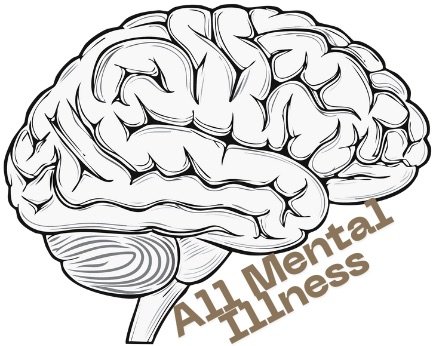It’s a question many people quietly wonder but rarely ask out loud: Is depression a disability?
If you’ve ever struggled to get out of bed, focus at work, or keep up with daily tasks because of depression, it can feel like more than “just sadness.” It can affect every area of life — energy, concentration, motivation, and even physical health.
The short answer is sometimes yes. Under certain circumstances, depression can be considered a disability, especially when it limits your ability to function in daily or professional life.
But the longer answer is layered — involving legal definitions, medical understanding, and personal impact. Let’s break down what that really means and how you can get the support you deserve.
An article from Medical News Today explains that depression qualifies as a disability when symptoms interfere with “one or more major life activities,” such as working, sleeping, concentrating, or caring for oneself.
This post will walk you through those definitions, what laws like the Americans with Disabilities Act (ADA) and Social Security Administration (SSA) say, and — most importantly — how to take care of your mental well-being along the way.
Understanding Depression Beyond the Label
Before diving into laws and definitions, it’s crucial to understand what depression really is — and what it isn’t.
Depression is more than feeling sad for a few days. It’s a medical condition that affects mood, energy, and thinking patterns. The National Institute of Mental Health (NIMH) defines depression as “a common but serious mood disorder that causes severe symptoms affecting how you feel, think, and handle daily activities.”
Symptoms can include:
- Persistent sadness or emptiness
- Loss of interest in enjoyable activities
- Changes in appetite or sleep
- Difficulty concentrating
- Fatigue or low motivation
- Feelings of guilt or worthlessness
When these symptoms are mild, they might not qualify as disabling. But when they become severe and long-lasting, interfering with your ability to work or care for yourself, depression can indeed meet the legal definition of a disability.
When Is Depression Considered a Disability?
According to the Americans with Disabilities Act (ADA), a disability is “a physical or mental impairment that substantially limits one or more major life activities.”
So, does depression fit this description?
✅ Yes — if the symptoms significantly impact your daily functioning.
That might include:
- Struggling to maintain regular work hours
- Difficulty concentrating or remembering tasks
- Needing extended rest due to exhaustion
- Missing days of work or school frequently
- Trouble managing relationships or personal care
Psychology Today notes that depression affects both emotional and cognitive function — meaning it doesn’t just lower mood; it changes how your brain processes information and responds to stress.
If your depression symptoms persist for more than two weeks and make daily activities hard to manage, it’s important to talk to a licensed therapist or psychiatrist. Seeking support is not just self-care — it’s self-advocacy.
If you’re preparing for your first session, our post How to Talk to a Therapist for the First Time walks you through how to start that conversation with confidence and comfort.
Depression Under the ADA: Your Workplace Rights

Is depression a disability
The ADA is a federal law that protects people from discrimination due to disabilities, including certain mental health conditions. Under this law, depression can qualify as a protected disability if it substantially limits your ability to perform essential job functions.
That doesn’t mean your employer will treat you differently; it means they must provide “reasonable accommodations.”
Examples of accommodations might include:
- Flexible scheduling or remote work options
- Modified deadlines during severe episodes
- Quiet workspace or reduced distractions
- Permission to attend therapy appointments
- Temporary reassignment to less demanding tasks
The U.S. Equal Employment Opportunity Commission (EEOC) states that employees are not required to share specific medical details — only enough to justify the need for accommodations.
If you face discrimination due to depression or any mental health condition, the ADA protects your right to file a complaint with the EEOC.
For more on transforming pain into advocacy, check out Beautiful Mental Health Tattoos to Inspire Healing — a powerful look at creative self-expression and mental health awareness.
Is depression a disability
Depression and Social Security Disability (SSD or SSI)
When symptoms of depression are severe enough to prevent you from working at all, the Social Security Administration (SSA) may recognize it as a disability under their criteria.
The SSA’s “Blue Book” lists depression under Section 12.04 – Depressive, Bipolar, and Related Disorders.
To qualify for Social Security Disability (SSD) or Supplemental Security Income (SSI), you must show that your depression meets one of these standards:
- Persistent symptoms for at least two years despite treatment
- Significant limitations in daily activities or social functioning
- Documented history of therapy, medications, or hospitalization
The Social Security Administration emphasizes the importance of medical documentation, including psychiatric evaluations and treatment records.
How to Talk to Your Employer or HR About Depression
Disclosing depression at work is a personal decision — there’s no rule that says you must. However, if your symptoms affect performance and you need accommodations, being open (to a trusted HR representative) can be empowering.
Here’s how to approach it:
- Know Your Rights: The ADA protects against retaliation or bias.
- Keep It Professional: Focus on the impact of symptoms, not emotional details.
- Example: “I’ve been managing a medical condition that occasionally affects concentration. I’d like to discuss flexible deadlines.”
- Bring Documentation: A simple letter from your doctor or therapist outlining accommodations is usually sufficient.
- Stay Solution-Oriented: Employers appreciate when you propose realistic adjustments that allow you to stay productive.
For practical communication strategies, revisit our post Positive Affirmations for Self Love – Reprogram Your Mind— it teaches self-assurance techniques that make tough conversations easier.
Overcoming the Stigma Around “Disability” and Depression
Many people hesitate to view depression as a disability because of social stigma. But the truth is, labeling depression as a disability doesn’t make you “weak” — it validates that mental illness can affect life just as much as physical illness.
Harvard Health reports that depression is one of the leading causes of workplace disability worldwide, yet remains underreported because of shame and misunderstanding.
Recognizing depression as a disability can actually be empowering. It helps people access legal rights, benefits, and accommodations that improve quality of life.
Remember: accepting help doesn’t define you by illness — it defines you by courage.
Managing Depression Day-to-Day

Is depression a disability
While legal recognition and workplace rights are important, personal wellness practices also make a major difference. Combine professional care with simple daily habits to ease symptoms and prevent burnout.
Try these:
- Journaling: Helps track emotional triggers and wins.
- Exercise: Physical activity releases mood-boosting chemicals like serotonin.
- Sleep Hygiene: Prioritize rest to stabilize mood and energy.
- Affirmations: Repeat phrases like “I’m healing, and I’m learning to manage my mind.”
Our article Positive Affirmations for Self Love – Reprogram Your Mind includes affirmations specifically designed for self-compassion and emotional balance.
Therapy and Medication: Combining Treatment Approaches
Many people managing depression find that therapy and medication together offer the best results.
- Therapy (CBT, DBT, or talk therapy) helps identify and reframe negative thought patterns.
- Medication like SSRIs can regulate brain chemistry to relieve severe symptoms.
The National Alliance on Mental Illness (NAMI) emphasizes that effective treatment often combines both, along with healthy lifestyle habits and social support.
If you’re starting therapy, How to Talk to a Therapist for the First Time can help you ease into the process and set realistic expectations.
Depression as a Disability: Real-Life Perspective
Legal definitions aside, what truly matters is how depression affects your daily experience.
Some people function well most days but need extra support during episodes. Others find that depression prevents them from maintaining consistent work or social life. Both experiences are valid.
Acknowledging that depression can be disabling doesn’t mean giving up — it means recognizing limitations and creating space for recovery.
That recognition often leads to greater empathy for yourself and others — a vital step in reducing internalized stigma and shame.
Final Thoughts: Understanding Without Judgment
So, is depression a disability?
Yes — when it limits your ability to function in everyday life. But beyond legal terms, the bigger truth is that depression is a human experience, not a personal failure.
Recognizing depression as a legitimate condition deserving care and accommodation is how we move from silence to healing.
If you’re living with depression, know that help exists in many forms — therapy, medication, self-care, workplace support, and creative healing. You don’t have to go through it alone.
At AllMentalIllness.com, we believe knowledge empowers recovery. Explore more posts like:
- Positive Affirmations for Self Love – Reprogram Your Mind
- Beautiful Mental Health Tattoos to Inspire Healing
- How to Talk to a Therapist for the First Time
Because understanding your mental health — and your rights — is one of the most powerful forms of healing.
Our Authority Sources
- Medical News Today – When Is Depression a Disability?
- National Institute of Mental Health – Depression
- Psychology Today – Understanding Depression
- U.S. Equal Employment Opportunity Commission – Depression, PTSD, and the Workplace
- Social Security Administration – Mental Disorders Listing
- Harvard Health – Understanding Depression
- National Alliance on Mental Illness – Treatment Options

